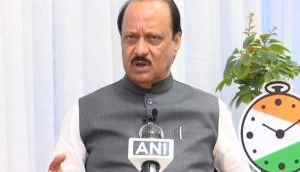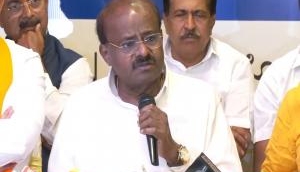
With an aim to make the digital infrastructure of the Indian judicial system more accessible, all High Court websites will now have captchas that are accessible to Persons with Disabilities (PwDs), informed the Ministry of Law and Justice on Sunday.
The facility has been started with the initiative of the e-Committee, Supreme Court of India.
These captchas serve as entry points to access several essential facets of a court website, such as judgments/orders, cause-lists, and checking the status of cases.
Many High Court websites were hitherto exclusively using visual captchas inaccessible to the visually challenged, making it impossible for Persons with Disabilities to access such content independently. In coordination with all High Courts, the e-Committee has now ensured that visual captchas are accompanied by text/ audio captchas making the website content accessible to the visually challenged.
On December 16, 2020, Chairperson of the e-Committee Justice DY Chandrachud exhorted all High Courts to make their digital infrastructure accessible to persons with disabilities in conformity with the constitutional and statutory entitlements of the disabled.
Following this, the e-Committee formulated an action plan to ensure the accessibility of the digital interface of all High Courts' websites in Phase 1 of this project.
According to the Ministry of Law and Justice, the e-Committee conducted a series of sessions for the central project coordinators of all High Courts and their technical teams to create awareness and impart training on ensuring accessibility of the digital interface of all High Courts' websites and generating accessible PDFs.
The e-Committee is also in the process of creating a Standard Operating Procedure (SOP) for generating accessible court documents and will serve as a user guide to its stakeholders. This will also address the issues of watermarks, entering content by hand, improper placement of stamps, and inaccessible pagination of files.
Another significant initiative undertaken by the e-Committee in collaboration with NIC is creating a judgment search portal ( https://judgments.ecourts.gov.in ) accessible to persons with disabilities. The portal contains judgements and final orders passed by all High Courts.
The portal uses a free text search engine. In addition, the portal provides the facility of using an audio captcha, along with a text captcha. It also uses accessible combo boxes, making it easier for the visually disabled to navigate the website.
The website of the e-Committee (https://ecommitteesci.gov.in/) and the e-Courts website (https://ecourts.gov.in/ecourts_home/) are also accessible to persons with disabilities. The e-Committee webpage is created on the S3WAAS platform, which complies with the standards for making websites accessible for the disabled.
The e-Committee's training programmes for Lawyers also sensitise advocates to adopt accessible filing practices.
(ANI)







![BJP's Kapil Mishra recreates Shankar Mahadevan’s ‘Breathless’ song to highlight Delhi pollution [WATCH] BJP's Kapil Mishra recreates Shankar Mahadevan’s ‘Breathless’ song to highlight Delhi pollution [WATCH]](https://images.catchnews.com/upload/2022/11/03/kapil-mishra_240884_300x172.png)

![Anupam Kher shares pictures of his toned body on 67th birthday [MUST SEE] Anupam Kher shares pictures of his toned body on 67th birthday [MUST SEE]](https://images.catchnews.com/upload/2022/03/07/Anupam_kher_231145_300x172.jpg)






